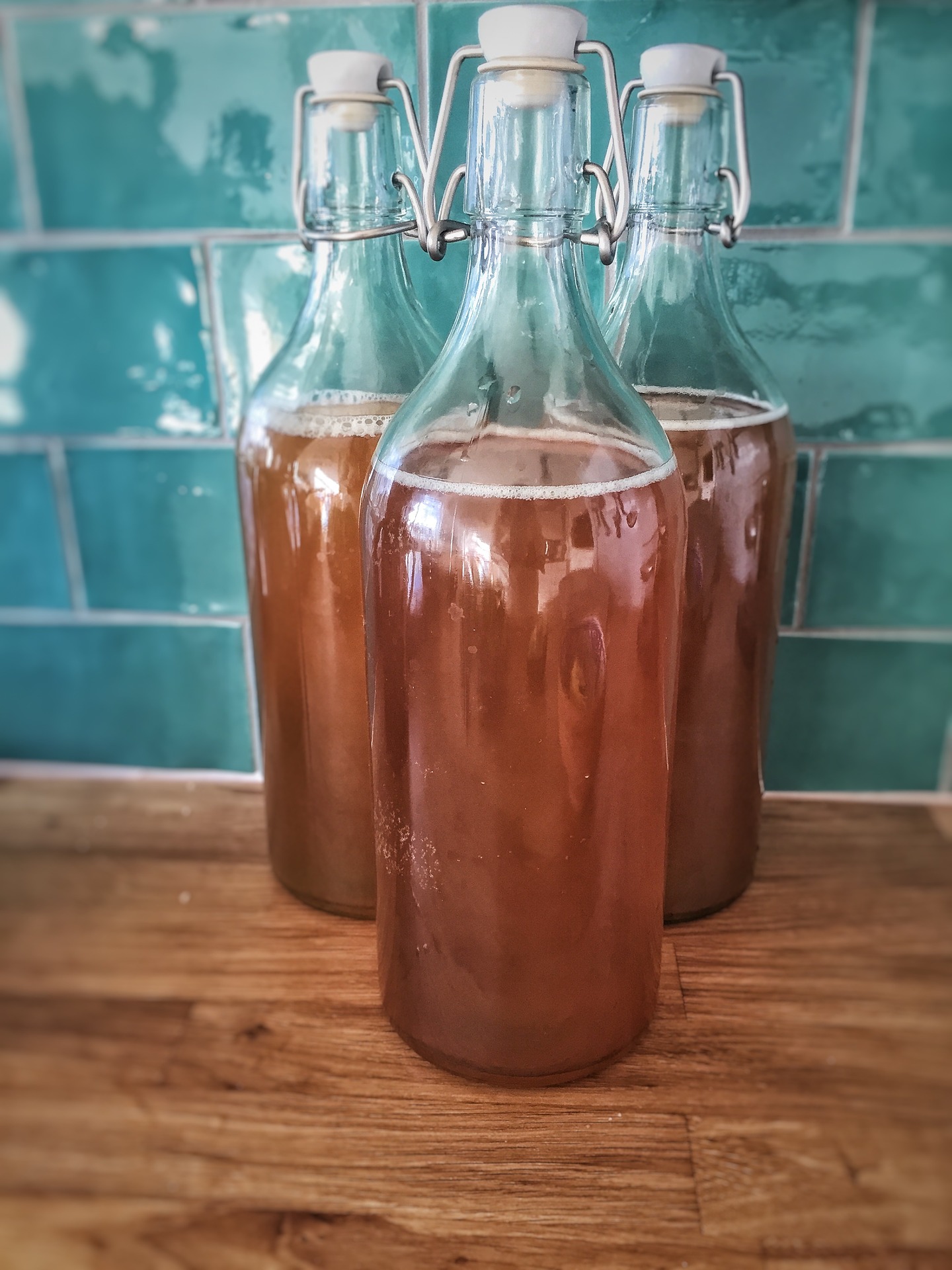If you’re not already familiar with kombucha but you’ve been shopping lately you’ve probably noticed the mysterious bottles popping up all over the place. Kombucha consumption is on the rise but…. What is it? Kombucha is essentially tea that has been fermented and has been widely known to have a considerable number of health benefits. Kombucha always starts with something known as a SCOBY (short for symbiotic culture of bacteria and yeast, if you’re as curious as I was) and during the fermentation process, additional bacteria is formed inside a mixture of black or green tea, yeast and sugar. This scoby that forms is also what lends kombucha the name of mushroom tea as it tends to appear to be a mushroom like film over the top of the liquid – sounds appetizing doesn’t it? So during the fermentation process both the yeast and the bacteria eat up the sugar for lunch and the by-product of that chemical reaction results in forming extra vitamins, acids and traces of alcohol (a natural result of fermentation). The link to gut health starts with the bacteria that is formed – it is a lactic-acid bacteria which is a naturally occurring probiotic often found in yogurt as well. The benefits of this probiotic isn’t a new discovery and interestingly enough, neither is kombucha.
Kombucha has been consumed for thousands of years and as it grows in popularity it has become more readily available for easy consumption. Because the fizzy drink is made from tea, it has all of the same antioxidants tea has to offer and some studies have shown that consistently drinking kombucha on a regular basis may reduce liver toxicity by up to 70%. The health benefits alone make kombucha worth drinking as the probiotics can aid in digestion, improve inflammation and maybe even have an impact on weight loss efforts. Because it’s made from tea, kombucha also contains some caffeine and who doesn’t love a small pick me up? The caffeine content is quite low, though, so don’t rely on kombucha as a coffee replacement. All of the positive effects of kombucha and wide variety of flavors available make it tempting to get as much as you can of it but many health experts warn that like most things, kombucha is best consumed in moderation.
The general consensus in terms of how much kombucha should be limited to is somewhere less than 12 ounces per day as there has been evidence of some adverse side effects whilst going overboard, including death. The risks tend to stem from contaminated kombucha which is usually associated with homebrewed kombucha and present themselves as stomach upset, allergic reactions, jaundice and infections. The professionally produced products tends to be safer because they are more regulated although there are some minor side effects of drinking kombucha as well but those seem to be similar to that of drinking regular soda – excess sugar intake resulting in stomach upset and bloating as a result of the carbonation.
Although kombucha begins as traditionally brewed tea, the flavor after fermentation is quite different so prepare your taste buds! Kombucha is often slightly sweet, a little bit sour and tends to have a bite of tartness. Incorporating beverages like kombucha into your diet as a part of your regular health regimen can be really beneficial for your over-all wellbeing. Kombucha is probiotic reach and boosts your gut health and can improve overall inflammation unlike most fizzy drinks readily available to us. The most important thing to remember when it comes to drinking kombucha is to be cautious with homebrews, choose brands or flavors that are lower in sugar and enjoy the health benefits in moderation.
